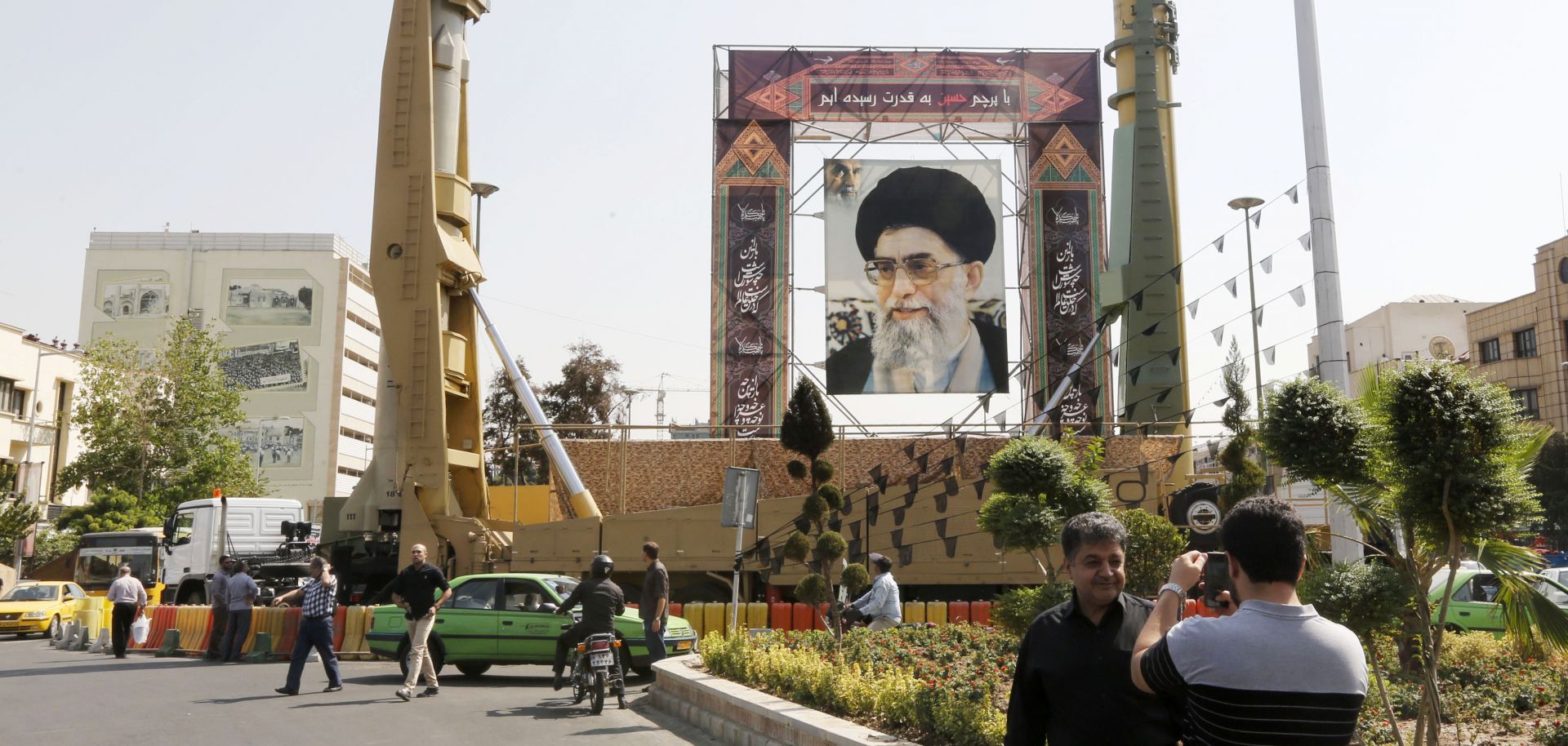ASSESSMENTS
Saudi Arabia and the UAE Consider the Cost of Israeli Ties
Oct 25, 2018 | 10:00 GMT

Medium-range ballistic missiles stand next to a portrait of Iranian Supreme Leader Ayatollah Ali Khamenei in Tehran on Sept. 25, 2017, during commemorations marking the anniversary of the 1980s Iran-Iraq war. Iran's rise has fostered a situation in which Saudi Arabia and the United Arab Emirates could work alongside Israel to present a united front against Tehran.
(ATTA KENARE/AFP/Getty Images)
Highlights
- In the face of the Iranian threat, Israel, Saudi Arabia and the United Arab Emirates are increasingly likely to coordinate their actions against Tehran.
- For Riyadh and Abu Dhabi, the domestic ramifications of collaboration with Israel might not be as deep as before, but the global backlash could hurt their standing throughout the Muslim world.
- Fears of a potential backlash will convince the two Gulf countries to keep their relations with Israel under the surface, yet they could upgrade them if they feel the United States is failing to properly address the Iranian threat.
Subscribe Now
SubscribeAlready have an account?
